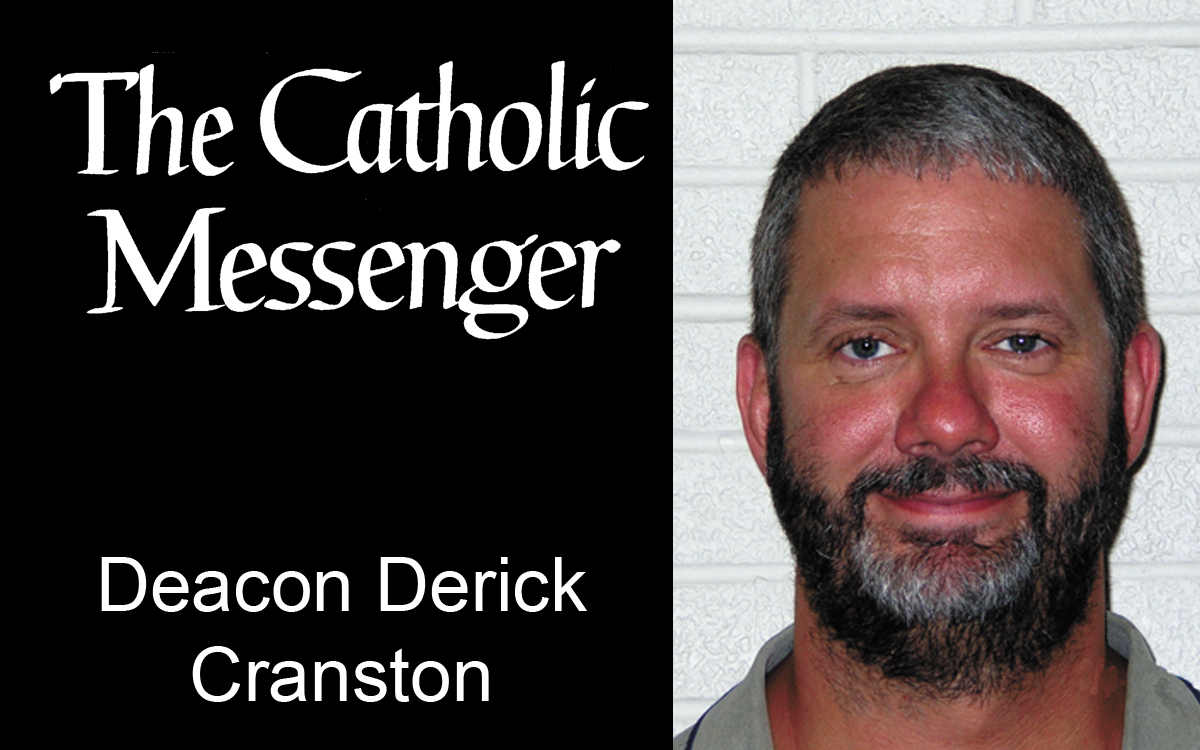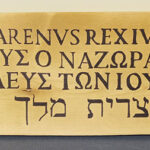By Deacon Derick Cranston
My grandmother had just checked on the fresh loaf of bread in the old cast iron stove. It was just starting to rise and the sweet aroma of freshly baked bread was filling the kitchen and floating out the open screen door. She happened to glance out the door and was startled to see standing off at a short distance two men staring at her. The expressions on their faces were intense and wary. They just stood there looking at her, as if trying to come to a decision.
 Her husband was overseas fighting in the war and she had three small children to look after. It was 1943, during World War II, and all able-bodied men had been drafted into the service. No men between their late teens and early 30s could be found anywhere. Yet standing there about 50 yards away were two healthy, blonde-haired young men probably in their mid-20s. It was then that she recalled hearing on the radio that two German prisoners had just escaped from a nearby POW camp.
Her husband was overseas fighting in the war and she had three small children to look after. It was 1943, during World War II, and all able-bodied men had been drafted into the service. No men between their late teens and early 30s could be found anywhere. Yet standing there about 50 yards away were two healthy, blonde-haired young men probably in their mid-20s. It was then that she recalled hearing on the radio that two German prisoners had just escaped from a nearby POW camp.
“Love not only your neighbor, but your enemy as well,” Jesus says in the Gospel. But what about when you are a young mother with kids at home and two desperate and dangerous men just outside your door? My grandmother remembered the stories she heard growing up about the “barbaric Huns,” the German soldiers who ravaged Europe during World War I. She had heard that they would spear little babies with their bayonets and do unspeakable things to women.
But she also recalled that every morning her mother would bake two loaves of bread. One loaf would be for the family and one for people who back then were called “hobos;” today we would refer to them as people who are in transit or homeless. Her family lived by the railroad tracks and every morning gaunt, bony men dressed in rags came from the trains, foraging for food. Times were hard, and although her family didn’t have much they were better off than the desperate men traveling on trains because they had no family or place to call their own.
Moved by something within her, my grandmother pushed all thoughts of fear from her mind and responded with the love she had learned from her mother. She took the bread on a platter along with a pitcher of ice cold water and walked out the door toward the two strangers. Their faces tensed and their muscles became rigid. She stopped halfway and put the platter on the ground. As she slowly backed away, she motioned for them to come forward and eat. For a few moments they did not move a muscle, but then cautiously stepped forward. When they reached the platter, they took it back with them and devoured the bread and drank the water. Then they went on their way.
Should my grandmother have notified the authorities? Was it wise for her to leave the protection of her home to provide food to dangerous and desperate men? It is hard to say. Years later, my grandmother recalls that she was taking clothes down from the clothesline when she heard the crunching of gravel, as a car slowly rolled to a stop in the front driveway. She heard the car door slam shut and, as she turned the corner, she saw a man dressed in a nice suit walking towards the door with a package.
She met him at the front stoop, and they both nodded and smiled. Without saying a word, the man set the package on the bench by the stoop and opened it. It was a picnic basket and inside was several rolls of bread and a little cash. Before he turned away, the man said with a slight accent, “Thank you”…which in Greek, is translated as “eucharist.”
(Deacon Cranston is pastoral associate for St. Mary Parish in Riverside, Holy Trinity Parish in Richmond and St. Joseph Parish in Wellman. He can be reached at derickcranston@gmail.com.)











